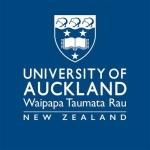New Zealand-led international network to monitor moves on obesity
A new international network, led from The University of Auckland, will for the first time monitor the efforts of governments and the food industry to prevent obesity.
Obesity prevention expert, Professor Boyd Swinburn, from the University of Auckland’s School of Population Health, has organised a meeting of public health experts from around the world to establish the new international network, to be known as INFORMAS (International Network for Food and Obesity / Non-communicable Diseases Research, Monitoring and Action Support).
The meeting, to take place in Bellagio, Italy, from 19-23 November, is sponsored by The Rockefeller Foundation, and jointly organised by the University of Auckland, International Obesity Taskforce (which Professor Swinburn co-chairs), and Deakin University in Australia.
It will bring together 23 of the world’s experts on monitoring food composition, food marketing, food labelling and food pricing. Participants will include representatives from the World Health Organisation (WHO), the Food and Agriculture Organisation (FAO), from the Universities of Auckland, Oxford, Toronto, Pennsylvania, Sydney, Deakin University and the George Institute, and from low- and middle-income countries, including Brazil, India, China, Mexico, South Africa and Fiji
The network will aim to increase the accountability of governments and the food industry in improving the world’s food environments. It will monitor the nutrient content of foods globally, the marketing of food to children, food prices, and government and private sector policies around food and obesity in a range of countries.
The members of the network are driven by a collective goal to tackle the alarmingly high rates of obesity - and its related diseases such as diabetes, cardiovascular diseases and cancer.
“We will be collecting benchmarking data so that governments and the food industry can be measured against reasonable standards for progress on reducing the unhealthiness of current food environments because it is mainly these food environments which are driving up obesity throughout the world. Over the past few decades, we have seen a dramatic increase in the supply of cheap, tasty, high-calorie foods that are very heavily marketed”, said Professor Swinburn.
“The United Nations, the World Health Organisation (WHO) and several public health groups have called for governments and the food industry to take urgent steps to improve food environments and prevent obesity.
“There are no good systems in place to measure what governments and the food industry are doing in relation to food environments. And there are no good standards in place to benchmark their policies and actions against good practice. And so there is no way of knowing if their efforts are hitting the mark.
“In most cases, governments are leaving the food industry to regulate their own efforts to improve food environments, and this is clearly failing to result in the improvements. There is currently no good way of comparing the foods available for sale in different countries and across time. There is also no good data on the relative prices of healthy and unhealthy foods in different countries.
“In addition, no-one is keeping track of the activities of the food industry that have important influences on the food supply, such as their lobbying of governments and the political donations they make. This is where INFORMAS will step in.
“By the end of the meeting we will aim to have in place benchmarks for measuring the progress of governments and the food industry and have finalised an approach to monitoring the healthiness of food environments in a range of countries. The first set of data is expected in 2013,” Professor Swinburn said.
